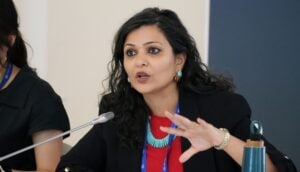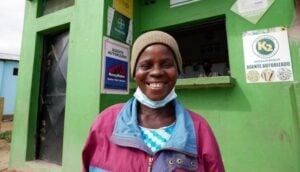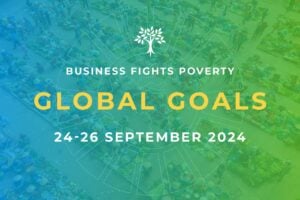How can we contribute to meaningful increases in emerging market GDP and jobs without getting in the way? By investing in small and medium enterprises (SMEs). The Microfinance Information Exchange reports that SMEs make up over 60% of national GDP and account for over 70% of total employment in emerging market nations.
SMEs are major players in the global economy, nowhere more so than in emerging market nations, where they employ more people than the public and social sectors combined. The problem is that most SME entrepreneurs are unable to access capital and suitable business support. They’re usually either too large for microfinance or too small for commercial funds and often don’t have collateral to put up as a guarantee for loans, making it nearly impossible for them to access basic financial services from banks. No wonder SMEs are often called the ‘missing middle.’
At Cornerstone International, we’ve developed a financial model to support these emerging market SMEs. Under the model, individuals, foundations, & businesses are able to invest without having to let go of a penny. The potential impact is enormous while the cost is simply the time it takes to sign some paperwork.
Those seeking to invest will sign a guarantee agreement with a nonprofit intermediary; the agreement will then be taken to a commercial lender and borrowed against, thus opening up a line of credit. In other words, idle capital is being put to work. Investors (or Guarantors, as we call them), get to maintain control of their own assets and keep earning returns on their current investments while simultaneously making a guarantee that can be borrowed against in support of emerging market entrepreneurs. All administrative costs and any unexpected loss for the Guarantor are tax-deductible. It’s a win-win.
Once the line of credit has been opened by the guarantee, it will be distributed by the intermediary to SME incubators already operating on the ground in emerging market nations. Each investment will be spread out across incubators and regions to further mitigate risk in the event of a temporary overseas financial crisis. 100% of guaranteed funds will go directly toward SME entrepreneurs as the intermediary will cover operational costs with the differential between the interest rate charged to borrow from a commercial lender and the interest it charges to incubators (global fair market).
The incubators on the ground will thoroughly vet SME entrepreneurs before selecting them as participants. Once selected, the entrepreneurs will not only benefit from capital injections to scale their businesses and create jobs, but they’ll also benefit from business support services provided by the incubator – to include training, mentorship, social responsibility awareness, etc. Incubators will develop close relationships with the SME entrepreneurs, an important factor in overall success, as well as an important factor in risk mitigation.
Our model seeks to target SMEs at the lower end of the scale, such as those with fewer than 25 employees and with annual revenues under $250,000. These are the SMEs most in need of capital for scaling and are the ones most likely to hire BoP (bottom of the pyramid) populations as they do so.
In addition to the risk mitigation mechanisms already discussed, the following will also be in place: pooling of all Guarantors (risk-sharing), ongoing M&E, and independent research evaluations.
To recap, this model allows Guarantors to open up a line of credit for an emerging market entrepreneur without handing over a penny. While Guarantors won’t earn a return on this deal, they will be able to keep their current investment portfolio intact.
Another positive thing about the model is that it promotes an increase in local capacity. The nonprofit intermediary will coordinate, but will not be on the ground running things – local businesspeople will be leading the charge. Additionally, as entrepreneurs scale their businesses, they will contribute to national GDP and create needed jobs.
SMEs matter in the business of development, and we’re passionate about making sure they’re included.
Vote:
Our SME finance model has been selected as a finalist in GOOD Maker’s Start Something That Matters Challenge.
We need votes to win and would appreciate it if you could take a few seconds to support us by JUNE 14th. Click here to VOTE
We’d also love to hear your thoughts/feedback on the model. Contact us to learn more. Thank you!









